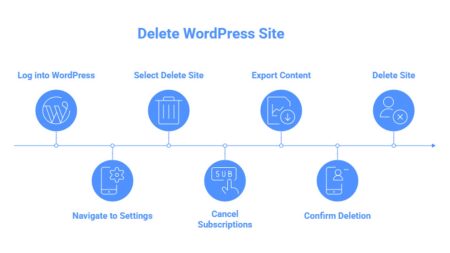The Key to Scalability and Innovation
Today technology changes at breakneck speed, businesses must adapt or risk falling behind. This is especially true in the realm of software. Many companies find themselves at a crossroads: should they build a solution in-house, or should they outsource custom software development services? The latter often emerges as the smarter option, allowing businesses to tap into global expertise, scale efficiently, and stay focused on core operations. Let’s dive into the nuts and bolts of custom software development outsourcing and explore how it can work like a well-oiled machine for your business.
Outsourcing Custom Software Development Can Truly Transform the Game
Time is money. And in the tech world, this couldn’t be truer. Developing software from scratch in-house can be a lengthy and expensive journey, often with unforeseen roadblocks. Outsourcing custom software development presents a viable alternative. It allows companies to hit the ground running, leveraging the skills and experience of external teams.
But why is this such a game-changer? For starters, outsourcing opens the door to a global talent pool. Companies aren’t limited to local resources. They can collaborate with developers from tech hubs around the world, gaining access to cutting-edge technologies and innovations that might not be available in-house. Whether you’re looking for AI capabilities, blockchain integration, or mobile app development, custom software outsourcing brings it all to the table.
Moreover, outsourcing doesn’t just provide cost savings – it provides flexibility. When you outsource custom software development, you only pay for the services you need. This allows you to scale up or down based on your current business needs, avoiding the financial burden of maintaining an internal team.
The Numbers Behind the Benefits
Don’t just take our word for it. According to a 2022 report by Deloitte, 70% of companies outsource software development to cut costs. Yet, it’s not just about the bottom line. More than half of those businesses – 54% to be exact – report outsourcing because they want access to superior expertise. It’s a tale as old as time: getting more bang for your buck.
And here’s where the numbers get even more interesting. Companies that have embraced outsourced custom software development can bring products to market 30% faster on average. That’s a massive competitive advantage in industries where being first can mean everything.
Not All Smooth Sailing – The Risks to Consider
Outsourcing isn’t without its risks, though. It’s not all sunshine and rainbows. While the idea of handing off a project might seem like smooth sailing, the reality can sometimes be more turbulent. Miscommunication between teams, time zone differences, and cultural barriers can cause friction. So, what’s the secret sauce to avoiding these pitfalls?
The answer lies in finding the right partner for outsourcing custom software development. Like in any relationship, you need to align goals and expectations from the start. Transparency, clear communication channels, and having a project manager who keeps everything running like clockwork are critical. Think of it as steering a ship – without a competent captain, you might drift off course.
Customization is Tailoring to Your Business Needs
When you decide to outsource custom software development, you’re not just looking for a one-size-fits-all solution (for example, custom healthcare software solutions). Off-the-shelf software often lacks the bells and whistles necessary for specific business operations. Custom software, however, is built with your specific requirements in mind. It’s like a tailor-made suit – designed to fit your company like a glove.
Businesses often have specific needs that can’t be met with pre-built platforms. This is where custom software outsourcing becomes invaluable. Whether it’s integrating with existing systems or developing a completely novel platform, outsourcing helps build a product that’s aligned with your goals. It’s not just about creating software – it’s about building something that’s as unique as your business model.
Productivity and Budget-Friendly Solutions are The Driving Forces
Picture this: your in-house developers are juggling multiple tasks, from fixing bugs in existing systems to brainstorming future projects. When you outsource custom software development, your team can offload those specific projects and focus on what they do best. This creates a streamlined process, reducing bottlenecks, and ultimately increasing productivity.
Outsourcing also lets businesses sidestep the high costs associated with hiring full-time developers. Did you know the average annual salary for a senior software developer in the U.S. is over $120,000? That doesn’t even account for benefits, training, or onboarding. By outsourcing custom software development, businesses can tap into regions where labor costs are lower without sacrificing quality. For instance, Eastern Europe and Asia are known for their top-tier developers at a fraction of the cost.
Innovation Through Outsourcing
In today’s hypercompetitive market, innovation isn’t optional – it’s necessary. One of the unsung benefits of outsourced custom software development is access to new technologies. These external teams often specialize in emerging tech like AI, blockchain, or IoT. In-house teams might not have the bandwidth or expertise to delve into these rapidly evolving fields, but outsourcing custom software development can fill that gap.
Consider this: AI-driven software solutions are becoming more prominent across industries. However, most in-house teams aren’t experts in AI. By outsourcing to a team that focuses on artificial intelligence, companies can integrate smart algorithms into their systems without needing to invest in training their internal staff.
Top Outsourcing Strategies for Reducing Risks
Though custom software development outsourcing offers numerous advantages, it’s not without risks. Choosing the wrong partner or neglecting clear communication can lead to costly mistakes. But fear not – following best practices can help mitigate these risks.
- First, perform due diligence. Check the credentials and past projects of potential outsourcing partners. Analyzing their portfolio and client reviews can give you a clearer picture of their capabilities. Also, having a well-drafted contract in place that outlines deliverables, deadlines, and consequences for unmet expectations is essential.
- Second, prioritize communication. Misunderstandings between internal and external teams are one of the biggest challenges in outsourcing. Tools like Slack, Jira, and Trello can keep everyone on the same page. Weekly meetings and status updates ensure projects stay on track and avoid nasty surprises down the road.
- Lastly, a phased approach works best. Instead of outsourcing the entire project in one go, start small. Test the waters with a smaller segment of the project. This allows you to assess the outsourcing partner’s efficiency, and if things go awry, it’s easier to course correct before sinking too much time and resources into the project.
Pick the Right Outsourcing Model
Outsourcing isn’t a one-size-fits-all solution. Depending on the nature of the project, businesses can choose from several models. The most popular ones include:
- Staff augmentation: Adding external talent to supplement your internal team for a set period.
- Project-based outsourcing: Handing off an entire project from start to finish to an external team.
- Dedicated development teams: Working long-term with a full external team that operates almost like an in-house department but based remotely.
Each model has its pros and cons. For short-term projects, staff augmentation might be the answer. If you need an entire project handled externally, then project-based outsourcing could be ideal. Not to mention that there should be a separate software quality assurance department.
The Future of Custom Software Development Outsourcing
Custom software outsourcing is on the rise. According to Statista, the global outsourcing market was valued at $92.5 billion in 2019, and it’s expected to continue growing. As the demand for digital transformation increases, more companies will lean toward outsourcing custom software development to keep pace with market demands.
As companies strive to become more agile, outsourcing will play a crucial role in helping businesses stay ahead of the curve. From increasing operational efficiency to fostering innovation, outsourced custom software development is proving to be more than just a cost-cutting measure – it’s becoming a core business strategy.
Bringing It All Together
In the end, the decision to outsource custom software development services comes down to balancing risks and rewards. Done right, outsourcing can save your company time, money, and headaches. It can open doors to global expertise, bring fresh perspectives to your projects, and help your business scale effectively.
So, the next time you’re faced with a software development project, ask yourself: do you have the bandwidth, expertise, and resources to tackle it in-house? Or is it time to cast a wider net and bring in the pros from around the world? Outsourcing custom software development isn’t just a passing trend – it’s the future of scalable, innovative, and cost-effective business solutions (for example, ITSM solutions).











